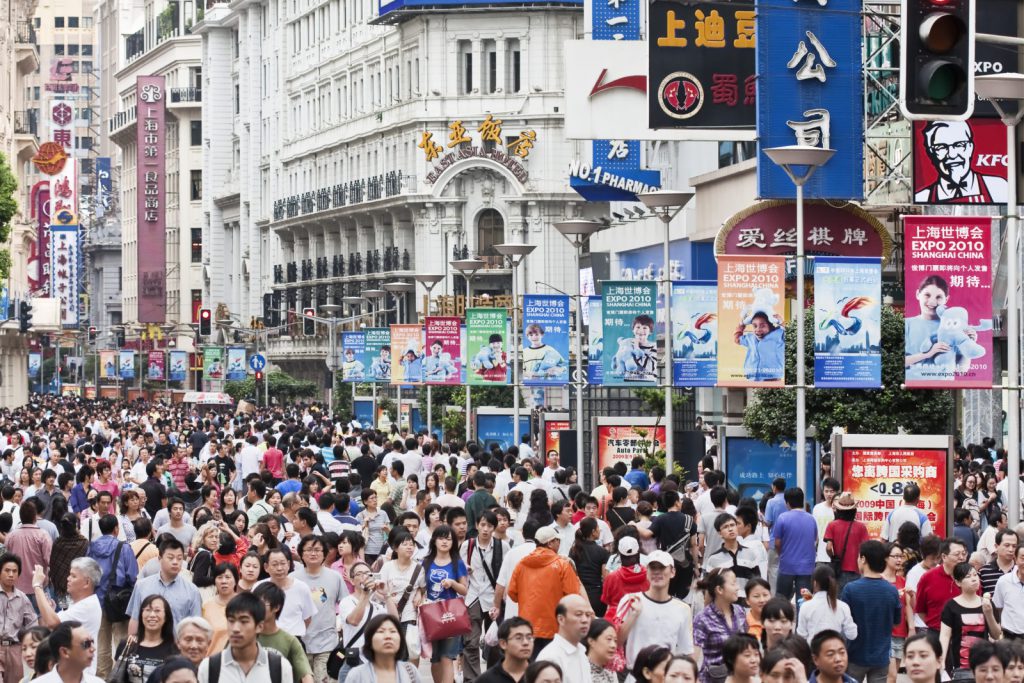
Published January 27, 2016
George Weigel's weekly column The Catholic Difference
State-sponsored cruelty has been a staple of the human condition for millennia. But has there ever been a more wicked policy, with more disastrous social consequences, than the “one-child policy” China began to implement in the early 1980s—a state-decreed population-control measure that resulted in, among other horrors, untold tens of millions of coerced abortions? In her new book, One Child (Houghton Mifflin Harcourt), veteran China-watcher Mei Fong describes both the impact of the policy on the destruction of China’s traditional social fabric and its draconian effects on China’s medium- and long-term future.
While demographic predictions can be perilous, there is also a relentlessness about demographic realities. And China, demographically speaking, is heading over the cliff, as the effects of state-mandated infertility, brutally enforced by a totalitarian regime, begin to be felt. For starters, China is about to experience a massive crisis in caring for its elderly—a task traditionally undertaken in Chinese culture by one’s children, but impossible when there aren’t enough children to do the job. Moreover, the pampered survivors of the one-child policy, often referred to as the “little emperor generation,” aren’t going to easily forget that it’s all about me as they face the challenge of inter-generational responsibility. So what happens when, in ten years or so, there will be more retired and elderly Chinese than there are Europeans, in a country that has nothing resembling western social safety nets?
One somehow suspects that a 2013 Chinese law that requires children to visit their elderly parents regularly—a coercive attempt to repair some of the social damage caused by even worse coercion—is not going to do the trick.
The effects of the one-child policy are also going to be felt in world politics. A shaky Chinese regime is likely to try and displace public discontents over the policy’s impacts on the Chinese economy and Chinese society by chest-thumping in its immediate neighborhood; signs of this are already visible in the South China Sea. The situation could become even more dramatic because the one-child policy has led to a grotesque distortion of the male-female ratio among young Chinese adults. In a culture that values sons more than daughters, the one-child policy took a terrible toll on baby girls. The result, according to Mai Fong, is that, in another decade, there will be more 30 million young Chinese men who have no prospects of finding a wife.
So what do you call 30 million men with volatile hormones and no marriage prospects? “Marauding army” sounds like a reasonable description—the kind of marauding army that could, for example, try to wrest a large chunk of Siberia and its mineral riches out of Russia’s control.
We’re so used to the default trope that China is “the world’s most populous nation” that it will come as a shock to many that, by some demographers’ estimates, China’s current population, 1.4 billion, will shrink to 500 million by the turn of the next century. But China’s demographic crisis could also be an evangelical opportunity.
Unlike India, where Christian mission has long been impeded by a thick, culturally-transmitted religious system, there is no such impediment in 21st-century China. The only impediment to Christian mission in China is the state: the Chinese communist regime’s determination to control all aspects of social and cultural life. But despite that determination, and the persecutions and martyrdom to which it leads, Chinese Christianity is growing rapidly. Old cultural traditions have been obliterated by communism; Christianity provides a compelling and compassionate alternative to the hollowness of the regime’s materialism; and unlike Europe, which has largely rejected its Christian heritage in a decades-long spasm of anti-clericalism, “Christianity” in China rings up “modern” and “humane,” rather than “pre-modern” and “inhumane.”
China in the late-21st century will be the greatest field of Christian mission since the Europeans crossed the Atlantic a half-millennium ago. The Chinese communist regime is about to become deeply unpopular, thanks to the effects of the one-child policy. It would be strategically unwise, to put it gently, if the Catholic Church, through the Vatican, were to embrace that regime diplomatically, just as it was beginning to feel the enmity of its people.
George Weigel is Distinguished Senior Fellow of Washington, D.C.’s Ethics and Public Policy Center, where he holds the William E. Simon Chair in Catholic Studies.











